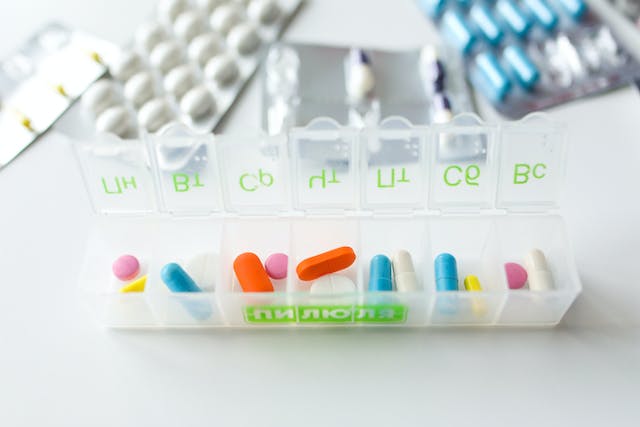Traveling Pharmacy Technician Jobs: A Guide to Finding Opportunities on the Road
Traveling pharmacy technician jobs are becoming increasingly popular among healthcare professionals seeking a change of pace. These positions offer the opportunity to work in different locations, gain experience in a variety of settings, and earn competitive salaries. For those who enjoy traveling and have a passion for helping others, a traveling pharmacy technician job may be an ideal career choice.
One of the main benefits of a traveling pharmacy technician job is the ability to work in different environments. Technicians may work in hospitals, clinics, long-term care facilities, or retail pharmacies across the country. This exposure to different settings allows technicians to gain valuable experience and develop a diverse skill set. Additionally, working in different locations can provide a unique perspective on healthcare and allow for personal and professional growth.
Another advantage of traveling pharmacy technician jobs is the competitive compensation packages. These positions often come with higher salaries, signing bonuses, and reimbursement for travel expenses. Many companies also offer benefits such as health insurance, retirement plans, and paid time off. For those who are willing to travel, these positions can provide a lucrative career path.

Understanding the Role
As a traveling pharmacy technician, individuals work in a variety of healthcare settings, including hospitals, retail pharmacies, and long-term care facilities. They are responsible for assisting pharmacists in dispensing medications and ensuring that patients receive the correct medication and dosage.
Education and Certification Requirements
To become a pharmacy technician, individuals must have a high school diploma or equivalent. Many employers prefer candidates who have completed a pharmacy technician training program, which can be found at community colleges and vocational schools.
Certification is not always required, but it can improve job prospects and earning potential. The Pharmacy Technician Certification Board (PTCB) and the National Healthcareer Association (NHA) offer certification exams for pharmacy technicians.
Duties of a Traveling Pharmacy Technician
The duties of a traveling pharmacy technician may vary depending on the healthcare setting, but they typically include:
- Assisting pharmacists in dispensing medications
- Compounding medications
- Labeling and packaging medications
- Maintaining patient records
- Communicating with healthcare providers and insurance companies
- Managing inventory and ordering supplies
Traveling pharmacy technicians must also be knowledgeable about medication safety and be able to identify and report any errors or adverse reactions. They must also adhere to state and federal regulations related to pharmacy practice.
Overall, the role of a traveling pharmacy technician is crucial in ensuring that patients receive safe and effective medication therapy.
Job Market Overview
Employment Opportunities
The job market for traveling pharmacy technicians has been steadily growing in recent years. With the increasing demand for healthcare services, there has been a surge in the need for qualified pharmacy technicians. This has led to a rise in the number of employment opportunities for pharmacy technicians across the United States.
Traveling pharmacy technician jobs have become increasingly popular due to the flexibility and variety they offer. These positions allow technicians to work in different settings and locations, gaining valuable experience and exposure to different pharmacy practices.
Pharmacy Technician Demand by State
The demand for pharmacy technicians varies by state, with some states having a higher demand than others. According to the Bureau of Labor Statistics, California, Texas, and Florida are the states with the highest employment level for pharmacy technicians. However, other states such as Alaska, Hawaii, and Vermont have a higher concentration of pharmacy technician jobs per capita.
Pharmacy technician demand is expected to continue to grow in the coming years, as the healthcare industry continues to expand. This means that there will be an increasing number of opportunities for pharmacy technicians, including traveling positions.
Overall, the job market for traveling pharmacy technicians is promising, with a variety of employment opportunities available across the United States. As the demand for healthcare services continues to increase, the need for qualified pharmacy technicians will only continue to grow.

Navigating Contracts
As a traveling pharmacy technician, understanding contracts is a crucial part of the job. Contracts dictate the terms of employment, including pay rates, housing arrangements, and other important details. Here are some key things to keep in mind when navigating contracts.
Contract Basics
Contracts are legal agreements between you and your employer. Before signing a contract, it is important to read it thoroughly and understand all the terms and conditions. This includes the start date, length of the contract, and any requirements for housing or transportation.
It is also important to understand the pay rate and any bonuses or incentives that may be offered. Be sure to ask questions if anything is unclear and negotiate terms if necessary.
Understanding the Radius Rule
Many contracts include a radius rule, which limits the distance you can travel from your assigned job site. This is usually set at a 50-mile radius and is designed to ensure that you are available for work when needed.
It is important to understand the radius rule and plan accordingly. If you need to travel outside the radius for personal reasons, be sure to get approval from your employer in advance.
Contract Length and Scheduling
Most contracts for traveling pharmacy technicians are for 13 weeks, although some may be shorter or longer. It is important to understand the length of the contract and plan accordingly.
Scheduling can also vary depending on the contract. Some contracts may require variable 8-hour shifts, while others may have set schedules. Be sure to understand the scheduling requirements before signing a contract.
In conclusion, understanding contracts is a key part of being a successful traveling pharmacy technician. By knowing the basics, understanding the radius rule, and being aware of contract length and scheduling requirements, you can ensure a successful and rewarding experience.
Licensure and Compliance
State Licensure Requirements
Pharmacy technicians who travel to different states for work must ensure that they have the appropriate licensure for each state they work in. Each state has its own requirements for licensure, and it is important for pharmacy technicians to research and understand these requirements before accepting a job in a new state.
Some states require pharmacy technicians to be registered with the state, while others require certification from a national organization such as the Pharmacy Technician Certification Board (PTCB) or the National Healthcareer Association (NHA). It is important for pharmacy technicians to keep their licensure and certification up to date in each state they work in.
Compliance with Healthcare Regulations
Pharmacy technicians must also comply with healthcare regulations in each state they work in. This includes complying with HIPAA regulations, maintaining patient confidentiality, and adhering to all state and federal laws related to pharmacy practice.
Pharmacy technicians must also be aware of any state-specific regulations related to pharmacy practice, such as restrictions on the types of medications that can be dispensed or requirements for medication labeling. Failure to comply with these regulations can result in disciplinary action, fines, or even criminal charges.
Overall, pharmacy technicians who travel for work must be knowledgeable about licensure and compliance requirements in each state they work in to ensure that they are practicing legally and ethically.

Financial Aspects
Understanding Pay Structures
As a traveling pharmacy technician, understanding pay structures is essential to ensure that you are being paid fairly for your skills and experience. The most common pay structures for traveling pharmacy technicians are hourly and weekly pay.
Hourly pay is a rate that is paid for each hour worked. This pay structure is common for short-term assignments and can vary depending on the location and demand for pharmacy technicians. Weekly pay, on the other hand, is a set amount paid for each week worked. This pay structure is common for long-term assignments and provides stability and consistency in pay.
It is important to note that pay rates can vary depending on the location, demand, and experience level of the pharmacy technician. It is recommended to research the average pay rates for pharmacy technicians in the specific location you are considering to ensure that you are being paid fairly.
Benefits and Compensation
In addition to pay, traveling pharmacy technicians may also receive benefits and compensation. Benefits can include health insurance, dental insurance, vision insurance, and retirement plans. Compensation can include bonuses, travel reimbursement, and housing allowances.
Weekly pay can also provide stability and consistency in benefits and compensation. For example, if a pharmacy technician is receiving health insurance through their agency, they may be required to work a certain number of hours each week to maintain their benefits.
It is important to review the benefits and compensation package offered by the agency before accepting a position. It is also recommended to negotiate the package to ensure that it meets your needs and expectations.
Overall, understanding pay structures, benefits, and compensation is essential for traveling pharmacy technicians to ensure that they are being paid fairly and receiving the necessary benefits and compensation for their skills and experience.
Clinical Environments
Pharmacy technicians who work in clinical environments play an essential role in ensuring the safe and effective delivery of medications to patients. Clinical environments can include hospital and outpatient settings, as well as retail and specialty pharmacies.
Hospital and Outpatient Settings
In hospital and clinical pharmacy settings, pharmacy technicians work alongside pharmacists to provide medication management services to patients. They are responsible for preparing and dispensing medications, managing inventory, and maintaining patient records. They may also be involved in medication reconciliation, which involves verifying a patient’s medication list and ensuring that any changes are accurately recorded.
Pharmacy technicians who work in outpatient settings, such as clinics or physician offices, may have similar responsibilities as those in hospital settings. However, they may also be responsible for communicating with patients about their medications and answering any questions they may have.
Retail and Specialty Pharmacies
Pharmacy technicians who work in retail and specialty pharmacies may have different responsibilities than those in clinical settings. They may be responsible for filling prescriptions, managing inventory, and providing customer service to patients. In specialty pharmacies, pharmacy technicians may also be responsible for managing complex medication regimens for patients with chronic conditions.
In both retail and specialty pharmacies, pharmacy technicians must be knowledgeable about various medications and their interactions, as well as any insurance or payment requirements. They must also be able to communicate effectively with both patients and healthcare providers.
Overall, pharmacy technicians who work in clinical environments must have a strong attention to detail and be able to work efficiently in a fast-paced environment. They must also be able to work well as part of a team and communicate effectively with both patients and healthcare providers.

Geographical Considerations
When considering travel pharmacy technician jobs, it is important to take into account the various geographical factors that can affect your experience. From the location of the assignment to the climate and culture of the area, there are many factors to consider when embarking on a travel assignment.
Travel Assignments Across the Country
Travel pharmacy technician jobs can take you to a variety of locations across the country. Some popular destinations include Rigby, ID, Aurora, CO, Worcester, MA, Wausau, WI, Scottsbluff, NE, New York, NY, and Havre, MT. Each of these locations has its own unique culture, climate, and job market, so it is important to do your research before accepting a travel assignment.
In Rigby, ID, for example, pharmacy technicians can expect to work in a small town with a tight-knit community. The climate in this area is generally mild, with warm summers and cold winters. Aurora, CO, on the other hand, is a bustling city with a diverse population and a thriving job market. Pharmacy technicians in this area can expect to work in a fast-paced environment with plenty of opportunities for career growth.
Worcester, MA, is another popular destination for travel pharmacy technicians. This area is known for its rich history and vibrant culture, as well as its world-class healthcare facilities. Pharmacy technicians in Worcester can expect to work in a dynamic environment with plenty of opportunities to learn and grow.
No matter where you choose to take your travel pharmacy technician job, it is important to be prepared for the unique challenges and opportunities that come with working in a new location. By doing your research and staying open to new experiences, you can make the most of your travel assignment and gain valuable skills and experience along the way.
Application Process
Submitting Applications
To apply for traveling pharmacy technician jobs, candidates must submit their applications through the employer’s preferred platform. Most companies require online applications, which can be completed through their websites or job boards. Before submitting an application, candidates should ensure they meet the minimum requirements for the position, including education and experience.
When submitting an application, candidates should provide accurate and up-to-date information. This includes their contact information, work history, and educational background. Candidates should also tailor their resumes and cover letters to the specific job they are applying for. This can help them stand out from other applicants and increase their chances of being selected for an interview.
Language and Communication Skills
Strong communication skills are essential for traveling pharmacy technicians. Candidates should be able to communicate effectively with patients, healthcare professionals, and other team members. They should also be proficient in English, as it is the primary language used in most healthcare settings.
When applying for traveling pharmacy technician jobs, candidates should ensure their language and communication skills are highlighted in their application materials. This includes providing examples of their ability to communicate effectively with patients and healthcare professionals. Candidates should also be prepared to provide references who can speak to their language and communication skills.
Overall, the application process for traveling pharmacy technician jobs is similar to other healthcare positions. Candidates should ensure they meet the minimum requirements for the position and provide accurate and up-to-date information in their application materials. Strong language and communication skills are essential for success in this field, and candidates should highlight these skills in their applications.

Professional Development
As a travel pharmacy technician, there are several opportunities for professional development. This section will explore some of the ways in which pharmacy technicians can advance their careers and gain valuable experience.
Career Advancement Opportunities
One of the most significant benefits of working as a travel pharmacy technician is the opportunity for career advancement. Pharmacy technicians who have several years of experience can become pharmacy clerks or even national integration pharmacy liaisons. These positions offer higher salaries and more responsibilities.
Pharmacy technicians can also gain valuable experience by working in different settings. By working in a variety of pharmacies, they can learn about different medications, systems, and procedures. This experience can be invaluable when seeking a higher-level position.
In addition to gaining experience, pharmacy technicians can also pursue further education. Many pharmacy technicians choose to become certified, which can lead to higher salaries and more job opportunities. There are several certification programs available, including the Pharmacy Technician Certification Board (PTCB) and the National Healthcareer Association (NHA).
Overall, travel pharmacy technician jobs offer many opportunities for professional development. By gaining experience, pursuing further education, and taking on more responsibilities, pharmacy technicians can advance their careers and achieve their goals.
Legal and Privacy Considerations
As a traveling pharmacy technician, it is important to understand the legal and privacy considerations that come with the job. This section will cover some of the key factors to keep in mind.
Understanding the Privacy Policy
One of the most important considerations for any pharmacy technician is the privacy policy of the pharmacy they are working for. This policy outlines how patient information is collected, stored, and shared, and it is important to understand it in order to protect patient privacy.
It is recommended that traveling pharmacy technicians review the privacy policy of any pharmacy they work for before beginning their assignment. This can help them understand what information they are allowed to access, how that information should be handled, and what steps they should take to protect patient privacy.
In addition to understanding the privacy policy of the pharmacy, traveling pharmacy technicians should also be familiar with HIPAA regulations. HIPAA is a federal law that regulates the use and disclosure of personal health information, and it applies to all healthcare providers, including pharmacy technicians.
Traveling pharmacy technicians should be aware of their responsibilities under HIPAA and take steps to ensure that they are in compliance with the law. This may include taking additional training, using secure communication methods, and following proper procedures for handling patient information.
Overall, understanding the legal and privacy considerations of traveling pharmacy technician jobs is essential for protecting patient privacy and ensuring compliance with federal regulations. By staying informed and taking the necessary steps to protect patient information, traveling pharmacy technicians can help ensure that they are providing the best possible care to their patients.
Working with Healthcare Staffing Agencies
Healthcare staffing agencies play a crucial role in connecting pharmacy technicians with job opportunities. These agencies work with various healthcare facilities, including hospitals, clinics, and long-term care facilities, to provide temporary and permanent staffing solutions.
Roles of Healthcare Staffing Agencies
Healthcare staffing agencies serve as intermediaries between pharmacy technicians and healthcare facilities. They help pharmacy technicians find job opportunities that match their skills and experience, and assist healthcare facilities in finding qualified pharmacy technicians to fill their staffing needs.
Some of the key roles of healthcare staffing agencies include:
- Recruiting: Healthcare staffing agencies actively recruit pharmacy technicians to build a pool of qualified candidates. They use various recruitment channels, such as job boards, social media, and referrals, to attract potential candidates.
- Screening: Healthcare staffing agencies screen pharmacy technicians to ensure that they meet the requirements of healthcare facilities. This includes verifying credentials, conducting background checks, and assessing skills and experience.
- Matching: Healthcare staffing agencies match pharmacy technicians with job opportunities that align with their skills, experience, and career goals. They work closely with healthcare facilities to understand their staffing needs and find the best candidates to fill those needs.
- Placement: Healthcare staffing agencies facilitate the placement of pharmacy technicians in healthcare facilities. They handle the logistics of the hiring process, such as scheduling interviews, negotiating contracts, and providing orientation and training.
Overall, working with healthcare staffing agencies can be a valuable resource for pharmacy technicians seeking job opportunities. These agencies provide access to a wide range of job openings, offer support throughout the hiring process, and help pharmacy technicians find the right fit for their skills and career goals.

